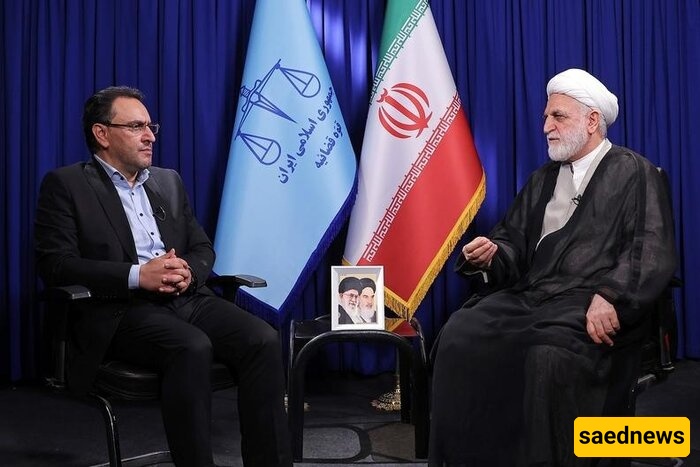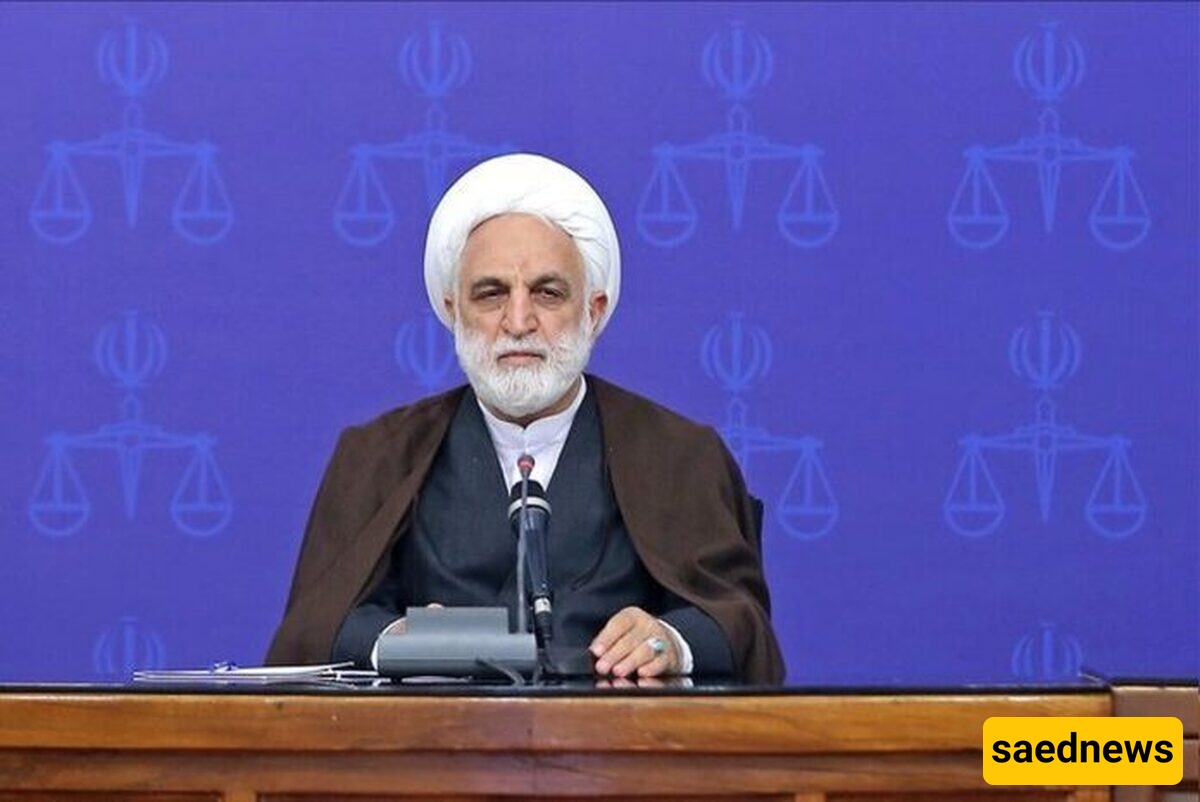SAEDNEWS: Iran’s top judge, Gholamhossein Mohseni Ejei, branded Israel as history’s “most wicked and criminal regime,” declaring Iran’s defense “entirely rational, legitimate and humane,” and vowed judicial and national unity in confronting the nation’s gravest security challenge.

According to Saed News,
Iran’s Chief Justice, Gholamhossein Mohseni Ejei, declared the Islamic Republic’s defense measures in the face of Israeli aggression as “entirely rational, legitimate, and humane,” during a televised address commemorating Judiciary Week. He underscored Iran’s resilience in the face of one of the “most malevolent and oppressive regimes in modern history” and affirmed that the people of Iran are unified in defending their sovereignty, dignity, and human values.

Speaking against a backdrop of heightened regional tensions, Ejei drew sharp contrasts between Iran’s current geopolitical situation and its eight-year war with Iraq, noting that while Saddam Hussein’s brutality was once unknown to the world, today, “even in the U.S., people condemn Israel’s transgressions.” He added that the Zionist regime’s actions—including the deaths of 54,000 Gazans in two years—have shocked the global conscience.
Ejei accused international organizations of silence in the face of Israel’s “barbaric crimes,” asserting that the defense of Iran is now synonymous with the defense of human dignity and civilization. “We are fighting enemies who reject the very idea of human decency,” he said.
Recounting the historic losses of the judiciary—including the 1981 assassination of 72 senior officials—Ejei emphasized Iran’s resilience, praising the country's capacity to transform mourning into strength. “They thought we’d collapse,” he remarked. “Instead, we rose stronger.”
In a striking show of state coordination, the Chief Justice announced he had issued 21 special judicial orders following Israel’s recent strikes, aimed at expediting national security trials and cracking down on espionage. He called for public vigilance and urged citizens to aid the judiciary in identifying threats and quelling psychological operations launched by Iran’s adversaries.
Addressing internal challenges, Ejei laid out a bold plan to assist the Iranian government in stabilizing the economy and preventing profiteering in the wake of regional instability. He noted that judiciary officials are now working overtime—even on holidays—to tackle pressing security and economic cases, while simultaneously refining mechanisms for dispute resolution and upholding civil liberties.
Judiciary Week, marked annually in memory of the assassinated Ayatollah Beheshti and his colleagues, has become a time to showcase institutional achievements. This year’s slogan—"A House of Justice as Vast as Beloved Iran"—reflects the judiciary's attempt to position itself not just as a legal institution, but as a bulwark against social, economic, and political disorder.
The Chief Justice also spotlighted reformative efforts, including updates to the Judiciary Transformation Charter, targeting both bureaucratic agility and responsiveness. He vowed to protect citizens’ dignity and streamline case handling, especially as economic pressures have led to a surge in legal complaints.
On the anti-corruption front, Ejei outlined an expansive redefinition of corruption, vowing to differentiate between security, economic, and cultural misconduct, and to equip judicial agencies with advanced tools and specialized knowledge for precision prosecution. He firmly rejected accusations of politicization, emphasizing, “There is zero tolerance for political bias in our fight against corruption.”
Ejei reiterated that accountability must be harsher for government officials than for private citizens, stating, “Corruption among public servants corrodes the state from within and must be rooted out with surgical precision.”
Regarding Iran’s stance on foreign adversaries, the Chief Justice lashed out at the U.S. administration, accusing it of duplicity. “The current U.S. president campaigned on peace and dialogue but has only fueled fire,” he said. “He will follow his predecessors into the dustbin of history.”
Finally, Ejei lauded the Iranian people for their unity and patriotism, highlighting the role of youth, whom he described as “more informed, resilient, and strategic than any generation before.” In his view, Iran’s collective resistance is not just a defense of land, but of a moral order—one that, if preserved, “will be remembered as a historic leap for the Islamic world.”

